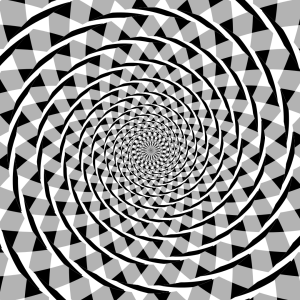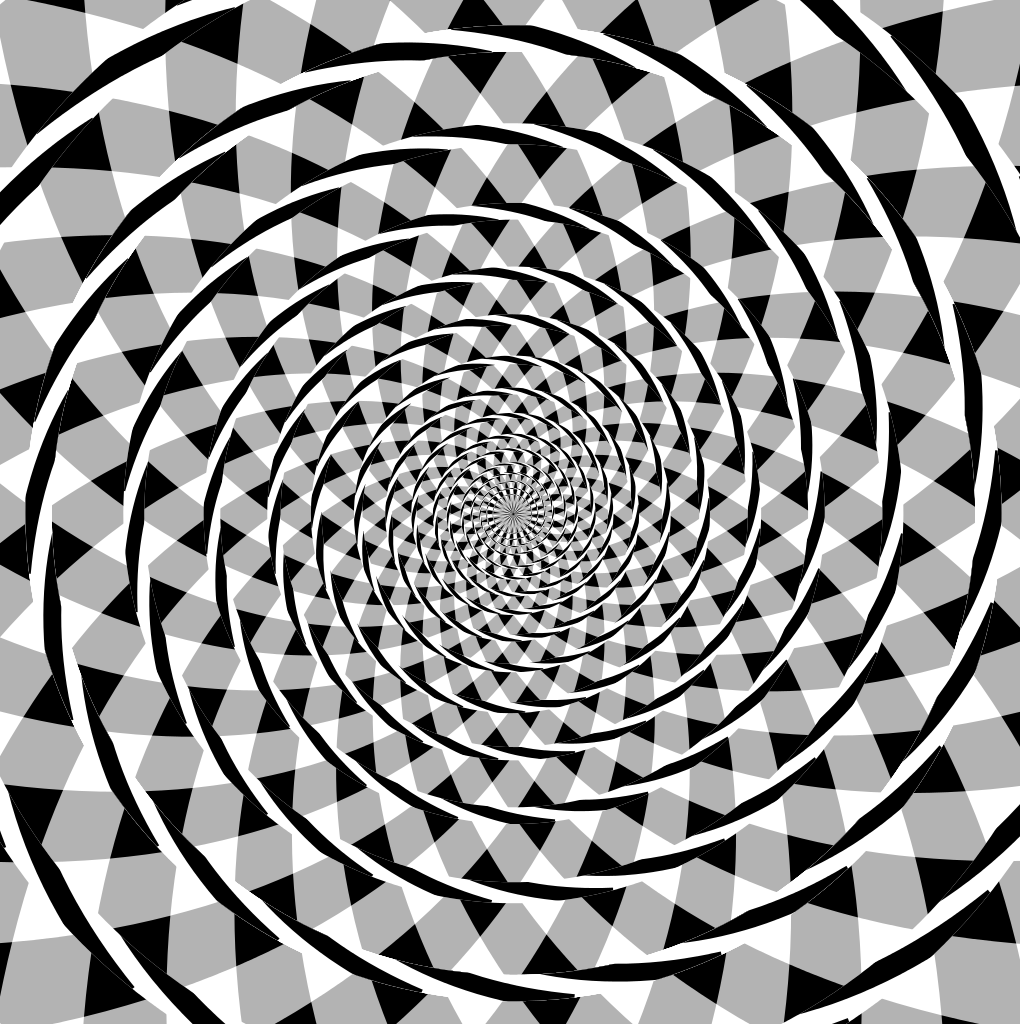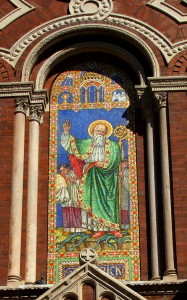
Periodically, it seems, I get into a headspace where not much comes out of me. My writing slows, I’m doing any music, not really hanging out with many people. It seems as if the energies of my consciousness are spinning in circles. They haven’t stopped moving, it’s not an input/output issue, but the trajectory of consciousness is not directed toward producing anything tangible.
It often happens after I get my head cracked open when a new concept lands on it, or a conversation sparks me to see things in a different way, ways I hadn’t seen before. I kind of wrote about this, definitely in a somewhat cryptic way, recently on Patheos, in my column called Footprints in the Muck, Blind Spots, & Seeing Past the Light.
Such is the nature of consciousness: while we have some measure of control over what it does and where it goes, attention has a will and an eye of its own. Usually, the untethered consciousness is on the lookout for Awen, that strange Druidic word-concept that means so many things. Inspiration, the Druid will say, is the best way to think about Awen, but it goes deeper than that. Every creative person will have their own relationship with Awen and its flow; the really skilled bards and artists will have mastered it. For Awen is always there all around us, if we can only learn to see. Sometimes, Awen is timid and shuts down under direct observation. We have to engage it, seduce it, often with play. The best artists know how to play.
Playing with indirect viewing can help us transcend the blind spots we don’t even know we have. Concepts are like light; when we perceive them, it tends to influence what we don’t see. They are useful and illuminating, but they create blind spots. In terms of perception, this is called masking, where two stimuli of similar type (such as frequency range for sound), the stronger stimuli will tend to render the weaker one invisible.
In addition, there has been some dialogue over at Gods & Radicals and other places on the internet that has me questioning the most efficient application of my own energy toward projects that are fulfilling for me, and helpful for the wider world. I think it is useful and valuable to write and to share my opinions and some of the training I have toward the end of creating a better world. Anti-capitalist activism — indeed activism of any kind — is fraught with the potential for burnout. In particular, I seem to find myself engaged with people who not only aren’t aware there is a problem with capitalism, but also think that capitalism is something to be defended. Having discussions like this is exhausting for me, and I have purposefully stopped engaging in these debates. This is a difficult step for me because I pride myself on being patient, and helping people see things in a different way is something I am occasionally good at. But it takes its toll on me.
And I am far from alone on this: Crystal Blanton writes over at The Wild Hunt:
The emotionally, physically, and spiritually demanding effects of social activism often mean an increased toll on the body and the spirit. I have personally experienced this work as emotionally draining, and know this to be true of most who are present in the consistency of the struggle. The interconnectedness of our experiences puts stress on the delicate balance of holding space for social change, fulfilling our commitments to our deities, spiritual practice, personal growth and allowing one to take care of the self simultaneously.
Her article also contains a survey of how some other people feel balancing their activist work and burnout.
In addition, Rhyd Wildermuth has been rocking some of these issues, in addition to managing the Gods & Radicals site. When asked what his biggest challenge was in terms of being compassionate, he responded:
“Holding the hands of middle-class people, coddling them, softening my words and critiques in order to ease them oh-so-gently into an understanding that the homeless person screaming profanities at them is suffering from the same system that makes them middle-class.”
I think maybe I can relate to this middle-class outlook, as well as the mostly-subconscious resistance to the idea that the very power structures that sustain their privilege also create enormous suffering. This is my world. I was raised in it, and it’s where I come from. My ancestors are a few dozen generations of Norwegian land tenants, workers who were too poor to own land and had to sell their labor for their subsistence.
It is precisely this re-examination of my own blanket of privilege that I have been circling around lately. The circles of thought in my consciousness aren’t spinning without traction, they are ever-searching for new ways of seeing and new understandings.
I don’t know why the stories of capitalism never resonated with me, despite the fact that I was programmed with them from an early age. Many of my classmates from high school, who were in the same privileged classes as me, have made a lot of money exploiting the system and whatever privilege they were blessed with. When I was younger, say 14 or so, I thought I’d be one of them. I remember thinking about how I’d become an engineer (like a mechanical, electrical, or computer engineer, not an audio engineer), make a lot of money, and retire by age 40. Well, it never happened. I’m 45 now, and won’t be retiring anytime soon.
But I have devoted most of my adult life toward understanding capitalism, and the political reality we humans have created for ourselves. I’ve learned a lot of things, not the least of which is that choosing to not engage the system any more than necessary for subsistence was a good choice for me. Had I chosen to play the game by the rules and make as much money as possible, this is about the time in my life where I’d have hit the wall of the mid-life crisis, where that deep-seated, gnawing feeling that your entire life’s existence is little more than an empty lie would have become too much to bear. Instead, my burden is imaginary numbers in someone’s computer (ie, debt), and I have endured with my spirit mostly intact and better-trained than many, with a wonderful near-adult daughter I raised, with people I love and who love me nearby.
The circle of resistance continues. I will still get frustrated at the in-fighting, how the dominant power structures are so adept at getting various factions of the victims of capitalism to fight and nitpick over every last scrap of privilege rather than band together and maximize resitance to the power structures. As Rhyd recently wrote, from within the state of scarcity that capitalism systematically creates for the vast majority of folk,
Privilege is the hierarchy of the poor. The more privilege you wield, the more scraps that fall from the tables of the rich you get to eat. Sure–the high-wage able-bodied white heterosexual cis-male tech worker gets to eat more, doesn’t have to worry about getting shot or raped or driven to suicide or becoming homeless. He wields his privilege over the others crawling across the floor with him, but as nauseating as it is for those of us making a fifth of his income or less to remember, he’s not sitting at the table either. He’s just at the top of the hierarchy of the exploited, most likely to be compliant and thus least likely to revolt.
But we must remember: the rich don’t have privilege–they’re the source of privilege, and they dole it out to the rest of us, favoring those who’ve volunteered to be most compliant, buying them off with higher wages and more access to justice.
The true way to end the deadlock is overturning the table so none of us have to fight over scraps.
Unity should not be a problem for most of us. When the system systematically favors so few, among a population with so many, you’d think it’d be easy. But the circles of resistance creates small tidepools and eddies, little ecosystems-within-ecosystems that have their own food chain, their own territorial settlements, and their own border skirmishes. It is easy to forget that another world is not only possible, but necessary; What Comes After is where the excitement is, where the life is, and where the human legacy — if there is to be one — will endure.


